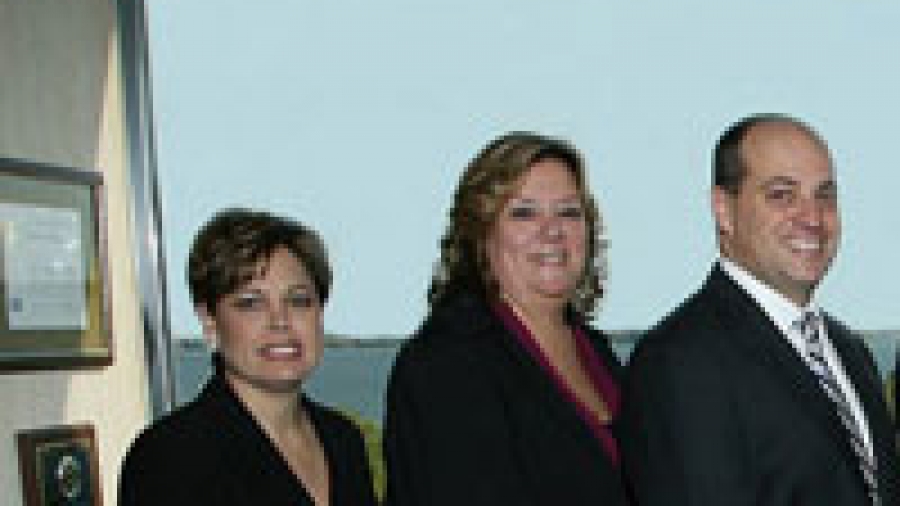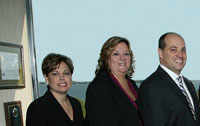
I had the opportunity to visit one of our member’s law firms for a few days last week. What I saw was another example of the beautiful relationship that can exist between estate planning attorneys and their key team members. I know, you might be thinking that “beautiful” is an odd word to describe a professional relationship, but that is truly the word that came to mind as we sat at lunch, talking, and I watched a paralegal complete the sentences and fill in the blanks as her attorney spoke.
Not only had she developed that “ESP” that comes with working so closely with someone, but she had that innate sense of care-taking that signifies someone who truly cares about the attorney, the clients and the firm. And the attorney has learned to trust and depend on that. When I think of the alienation many business owners feel, and how unappreciated and unheard many employees feel, the synergy between these two was a reminder of how good it can be.
In over a decade of coaching hundreds of law firms and co-authoring a book teaching team members to take control of their job without losing their spirit and sanity, I continue to realize how special and unique the relationship between a business owner and their support team can be. So often, when we start working with a firm the attorney is frustrated because the team won’t “step up,” and team members are pulling their hair out because the attorney won’t “get out of the way and let me help him.”
The interesting and often overlooked thing is that both sides want the same thing – to grow the firm, reach goals and make day-to-day life less stressful. They just have different perspectives on how to accomplish this, and totally different vocabulary to describe their needs. Both sides end up feeling frustrated and unheard. It’s such a sad thing, because so often the team really cares, but they aren’t articulating it in a way the attorney can hear. The members of the firm I was visiting have learned to listen and really hear one another, and you can see it in the synergy and trust they share.
To see the power of your team’s intentions, try to get past the words and listen for their purpose. Your assistant might be saying something like: “You have to stop giving me documents to print and assemble an hour before the client comes in. You are completely stressing me out!” But you have to learn to listen for what’s beneath that. Why is she stressed? Why does she care if she is doing something at the last minute? Sure, the easy and valid answer is that it causes her stress and disrupts her day.
But there is a lot more to it. I bet you a dollar if you asked her to share with you why this stresses her out, the answer would sound something like this:
It stressed me out because when we do the document at the last minute we often make mistakes. It’s embarrassing when the client’s name is spelled wrong. My attorney is SUCH a good attorney, so I hate when clients think he is careless. I see that he goes above and beyond to protect his clients, often working nights and weekends, but clients don’t know that and they completely lose confidence in him when they see spelling errors and simple mistakes in their documents.
I’m not making up this answer. I’ve heard it time and again when employees are sharing their frustrations about their attorney doing last-minute documents, running late to meetings and such. There is always something beneath the complaint, and it’s usually because they care about the attorney’s reputation. How beautiful is that, to have a support team member who doesn’t just show up, go through the motions and collect a paycheck, but one who truly cares about how the attorney is perceived by the community.
An attorney’s mind-set – and remember, mindset means what is ‘real’ to them, which might not be factually true, but is just as impactful – is often like this:
- Came out of three years of law school as a trained skeptic
- $100k+ in student loans
- Entitled to a six-figure practice because that is what everyone said an attorney would earn
- No training on how to run a business
- No training on how to manage a team
- “Need to think about it” is the tool to defer decisions to defer risk
- Always hears everyone else’s problems
- Works to pay everyone else's salary
- Alienated – can’t talk freely with clients or team and tries not to take it home
- Delegating certain tasks is insulting to their training
- Terrified of not knowing the law
- Constant pressure of cash flow
- Needs your support, but doesn’t know how to earn it, and wishes someone would figure it out
- Is terrified of marketing so hides behind “the law”
- Confuses “busy” with “important”
- Creates confusion and chaos (not intended)
Employees come from a completely different background – typically the more structured corporate environment, which is totally different from working for an attorney entrepreneur. Or, they have the corporate mentality ingrained in them from conversations they’ve had with their parents or their friends on what to expect in the workplace.
The mindset of employees is often:
- Terrified of being fired
- Overwhelmed and underpaid
- Trained from past experience to stay “in the box”
- Unsure of their boundaries
- Do NOT know what you mean by “step up” or how to live the role of the “PAIN”
- Don’t understand the thought process of a business owner or clients
- Live in the PROCESS and system, don’t understand their place in the BIG conversation
- Highly stressed from being at the whim of the attorney’s interruptions
- Unwilling to be honest because the attorney signs the paychecks
- Feel insulted when the attorney gives “drive-by” suggestions for a job they have never done
- Too busy to sit in another meeting
- Will spend the first 15 minutes of every meeting recapping where the last meeting left off
- Aren’t acknowledged enough
You can see how both the attorney and the team member can want to achieve the same result, but communication about it completely shuts the other side down. If we can work past this, and learn to get into the other person’s perspective, powerful communication and movement can occur.
Ask questions and listen for the intentions behind the words. You will be surprised at how much your team cares about you and the firm. You really are on the same page. You just have to learn to speak the same language and get into each other’s perspective.
If you are interested in learning about Lawyers With Purpose and want to see what we have to offer, register to attend our Asset Protection, Medicaid and VA Summit, September 12-13 in Phoenix, AZ. Register now today. Seats are filling quickly.
Laney Lyons-Richardson, Implementation Coach for Lawyers with Purpose, LLC, and author of Don’t Be a Yes Chick: How to Stop Babysitting Your Boss, Transform Your Job and Work with a Dream Team Without Losing Your Sanity or Your Spirit in the Process.

















